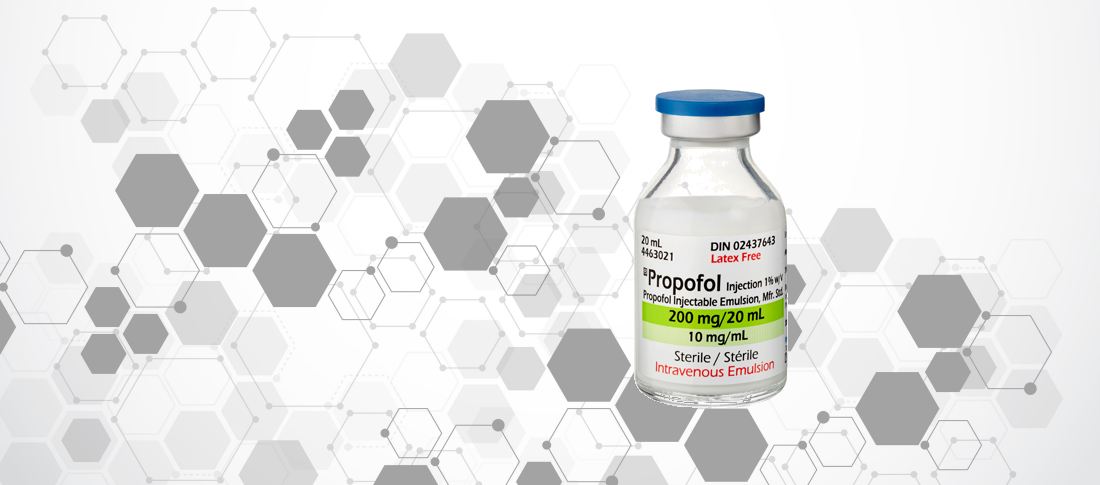Conscious sedation: Pharmacology.
Applied pharmacology
Propofol

ADVANCED
Propofol is a short-acting intravenous sedative-hypnotic medication commonly used for advanced conscious sedation in medical and dental procedures.
It works by enhancing the activity of the inhibitory neurotransmitter GABA in the central nervous system, similar to other sedative agents such as midazolam.
Propofol has a rapid onset of action and a relatively short duration of effect, making it an ideal agent for procedures requiring deep sedation or general anaesthesia. It is highly lipid-soluble and has a rapid redistribution from the brain to peripheral tissues, resulting in a rapid recovery after discontinuation of the drug.
Propofol has dose-dependent sedative, anxiolytic, and amnestic effects. It can cause a rapid induction of unconsciousness at higher doses, allowing for deep sedation or general anaesthesia.
Propofol is metabolised mainly in the liver, and its metabolites are eliminated primarily in the urine.
Why is it particularly important to monitor patients receiving propofol closely?
Propofol is a valuable agent for advanced conscious sedation due to its rapid onset and short duration of action, making it an effective agent for procedures requiring deep sedation or general anaesthesia. However, its use requires careful monitoring and appropriate dosing to ensure patient safety.

